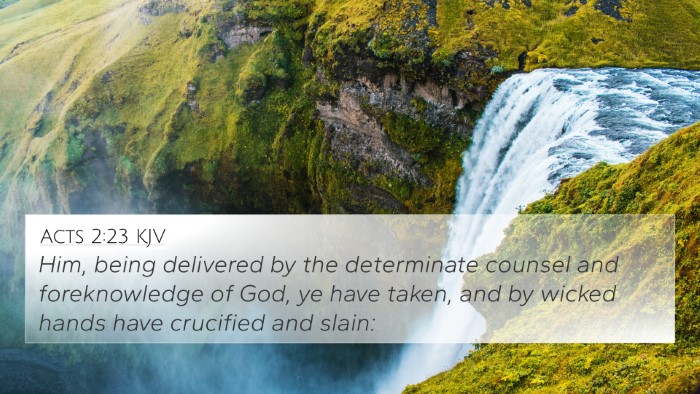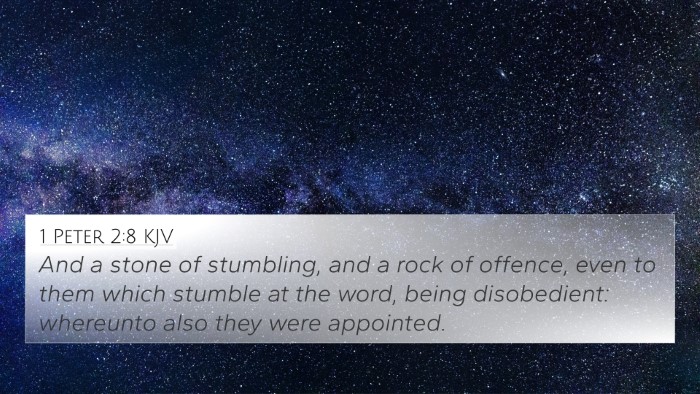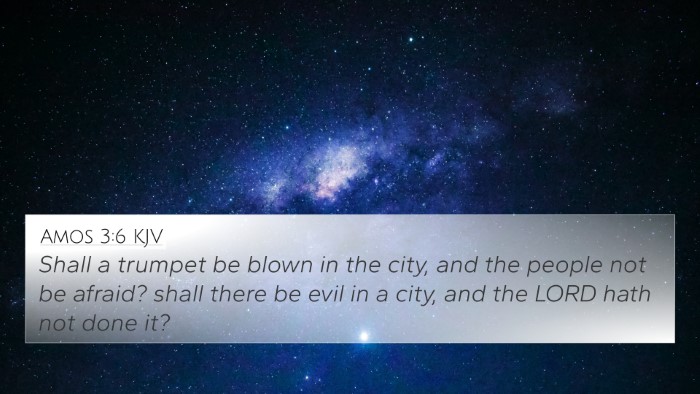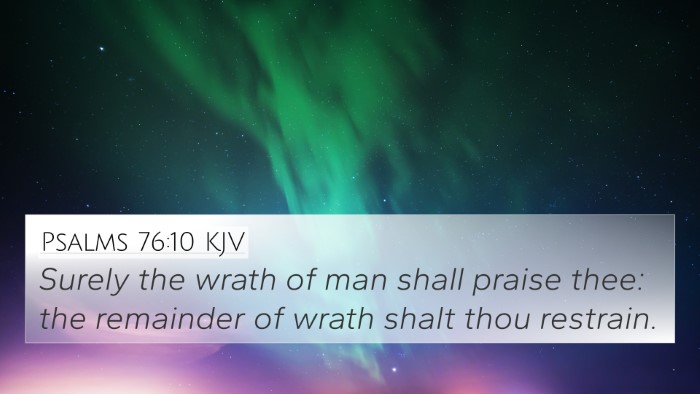Understanding Isaiah 37:26
Isaiah 37:26 states: "Have you not heard? Long ago I assigned it. In days of old I planned it; now I have brought it to pass, that you have turned fortified cities into piles of stone." This verse provides profound insight into God's sovereignty and foreknowledge, emphasizing His control over historical events and His ability to fulfill His plans, even when they seem distant.
Key Themes Identified
- God's Sovereignty: This verse illustrates how God's will prevails in the course of history.
- Historical Foreknowledge: It points to God's ability to foresee and orchestrate events long before they occur.
- Destruction of Cities: The reference to cities becoming piles of stone serves as a metaphor for divine judgment.
Commentary Insights
According to Matthew Henry, this verse reflects God's ultimate authority over earthly events, showcasing how even the strongest cities can be reduced to ruins by divine decree. He emphasizes that God's plans are set from the beginning and are executed in His perfect timing.
Albert Barnes offers insight on the historical context, noting that this passage reminds readers of the Assyrian threat during Isaiah's time. God reassures Israel that their enemies' successes are temporary, and their downfall has already been determined by divine providence.
Adam Clarke highlights the significance of God’s actions in turning fortified cities into mere rubble, reinforcing the message that human might can be rendered powerless against the will of the Almighty. Clarke suggests the verse calls for a recognition of God's power in judgment and salvation.
Bible Verse Cross-References
- Isaiah 10:12: Highlights God's judgment against Assyria.
- 2 Kings 19:32-36: Describes the defeat of the Assyrian army.
- Jeremiah 25:9: Speaks of God summoning nations to judgment.
- Isaiah 46:10: Declares that God declares the end from the beginning.
- Psalms 33:10-11: Emphasizes the futility of human plans against God's sovereign will.
- Proverbs 21:30: Affirms that no wisdom, understanding or counsel can prevail against the Lord.
- Micah 5:5: Points to the impending judgment and peace promised by God.
Inter-Biblical Dialogue
The connections between this verse and others create a rich tapestry for study and reflection. The thematic elements serve as a reminder that God's sovereignty pervades both the Old and New Testaments. This can be seen in how the apostles, particularly in the books of Acts and Romans, articulate God's overarching plan of redemption and judgment.
Cross-referencing this verse in the context of the prophetic literature allows readers to better understand the historical incursions that shaped Israel's narrative. Using tools for Bible cross-referencing such as a Bible concordance can provide deeper insights into the interconnectedness of God's word.
Conclusion
Isaiah 37:26 is not merely a record of historical events but a profound expression of God's dominion over history and His unwavering ability to execute His plans. By engaging with this verse alongside related scriptures, believers can gain a more comprehensive understanding of God's character and the assurance that His word is fulfilled, transcendently and temporally.
Additional Study Resources
For those interested in exploring Bible verses that relate to each other, it is beneficial to utilize comparative Bible verse analysis or tools for Bible cross-referencing. Engaging with these resources improves the understanding and appreciation of scripture, such as:
- Cross-reference Bible study techniques.
- Detailed cross-reference guides for thematic studies.
- How to find cross-references in the Bible for deeper revelation.
Overall, the intricate connections between biblical texts serve to enhance our study and understanding of God's Word, encouraging believers to recognize the profound unity within scripture.















